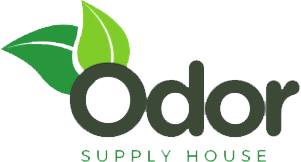
Hydroxyl Radicals vs Mold and Mycotoxins: Part 2
Share
Hydroxyl Radicals vs Mold and Mycotoxins: Part 2 – Advanced Remediation Technologies
Recap: Hydroxyl Radicals and Their Benefits
Hydroxyl radicals (•OH) are among the most reactive oxidizers in nature. They are formed when water molecules are split by UV light, catalysts, ozone, or hydrogen peroxide. Once generated, hydroxyl radicals immediately attack organic pollutants such as mold spores, bacteria, VOCs, and mycotoxins.
Hydroxyl radicals work on both air and surfaces, going beyond traditional sprays and wipes. They neutralize contaminants at the molecular level and leave harmless byproducts like oxygen and water.
NeoSan Labs 04 Remediation Formula
The NeoSan Labs 04 Remediation system is a versatile oxidizing solution for large-scale decontamination. It generates hydroxyl radicals and other reactive species that break down mold, mycotoxins, pathogens, and odors effectively.
How It Works
NeoSan Labs 04 can be applied in multiple formats: liquid, spray, foam, aerosol, or ULV fogging. This allows for both targeted surface treatment and whole-room decontamination. When fogged, the solution spreads throughout the air and penetrates cracks, crevices, and porous surfaces.
It is EPA-registered and Green Clean certified, designed to provide safe, effective, and environmentally responsible remediation.
Pros
- Flexible application formats: spray, foam, liquid, aerosol, or fog
- Surface and whole-room treatment
- EPA-registered and Green Clean certified
- Broad-spectrum: effective against mold, bacteria, viruses, VOCs, and mycotoxins
- Residue-free: decomposes into safe byproducts
Cons
- Professional handling recommended for fogging and foam applications
- Requires specialized equipment for some applications
- May leave a temporary oxidizing scent after treatment
- Not intended for DIY use
SteraMist System
SteraMist uses Binary Ionization Technology® (BIT) to generate hydroxyl radicals and reactive oxygen species. A low-concentration hydrogen peroxide solution is aerosolized and converted into a fine mist, which neutralizes mold, mycotoxins, and pathogens in both air and on surfaces.
How It Works
The hydrogen peroxide solution passes through a plasma arc, producing a mist of hydroxyl radicals. This mist covers surfaces and airspaces simultaneously, penetrating cracks and hidden areas. SteraMist is widely used in commercial, remediation, hospitality, service provider, healthcare, and laboratory environments.
Pros
- Provides whole-room decontamination
- Residue-free: breaks down into oxygen and water
- EPA-registered for general-use disinfection
- Rapid reentry: treated spaces can often be reoccupied quickly
- Effective in a wide range of industries, not limited to healthcare
Cons
- Requires specialized SteraMist equipment, high upfront cost
- Ongoing consumables needed (hydrogen peroxide solution)
- Operator training required for safe and effective use
- Spaces must often be vacated during application
NeoSan Labs 04 vs SteraMist: Side-by-Side
| Feature | NeoSan Labs 04 | SteraMist |
|---|---|---|
| Application Formats | Liquid, spray, foam, aerosol, ULV fog | Primarily mist/fogging |
| Coverage | Surfaces + air + whole-room fogging | Surfaces + air via mist |
| Certifications | EPA-registered, Green Clean | EPA-registered |
| Deployment Environments | Remediation, commercial, residential | Remediation, commercial, healthcare, hospitality, service providers |
| Residue | Minimal to none | Minimal to none |
| Reentry | After aeration | Often rapid, depending on ventilation |
| Cost & Complexity | Requires foggers/sprayers, moderate investment | Higher upfront cost, recurring consumables |
| Best Use | Flexible remediation, small or large spaces | Uniform whole-room decontamination, sensitive environments |
Key Takeaway
NeoSan Labs 04 offers flexibility with multiple application formats and strong certifications, making it ideal for versatile remediation scenarios. SteraMist is ideal for large-scale, uniform whole-room decontamination in sensitive or high-traffic environments. Both systems leverage hydroxyl radicals for powerful, residue-free mold and mycotoxin remediation.
